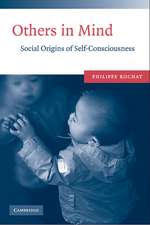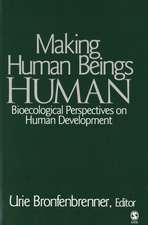The Cambridge Companion to Piaget: Cambridge Companions to Philosophy
Editat de Ulrich Müller PhD, Jeremy I. M. Carpendale PhD, Leslie Smith PhDen Limba Engleză Paperback – 23 aug 2009
| Toate formatele și edițiile | Preț | Express |
|---|---|---|
| Paperback (1) | 275.25 lei 6-8 săpt. | |
| Cambridge University Press – 23 aug 2009 | 275.25 lei 6-8 săpt. | |
| Hardback (1) | 550.35 lei 6-8 săpt. | |
| Cambridge University Press – 30 aug 2009 | 550.35 lei 6-8 săpt. |
Din seria Cambridge Companions to Philosophy
-
 Preț: 232.01 lei
Preț: 232.01 lei -
 Preț: 189.37 lei
Preț: 189.37 lei -
 Preț: 283.89 lei
Preț: 283.89 lei -
 Preț: 230.95 lei
Preț: 230.95 lei -
 Preț: 264.35 lei
Preț: 264.35 lei -
 Preț: 230.70 lei
Preț: 230.70 lei -
 Preț: 199.05 lei
Preț: 199.05 lei -
 Preț: 236.42 lei
Preț: 236.42 lei -
 Preț: 266.78 lei
Preț: 266.78 lei -
 Preț: 199.05 lei
Preț: 199.05 lei -
 Preț: 225.41 lei
Preț: 225.41 lei -
 Preț: 202.99 lei
Preț: 202.99 lei -
 Preț: 198.62 lei
Preț: 198.62 lei -
 Preț: 232.01 lei
Preț: 232.01 lei -
 Preț: 233.13 lei
Preț: 233.13 lei -
 Preț: 234.23 lei
Preț: 234.23 lei -
 Preț: 273.58 lei
Preț: 273.58 lei -
 Preț: 266.78 lei
Preț: 266.78 lei -
 Preț: 231.13 lei
Preț: 231.13 lei -
 Preț: 277.57 lei
Preț: 277.57 lei -
 Preț: 265.43 lei
Preț: 265.43 lei -
 Preț: 264.35 lei
Preț: 264.35 lei -
 Preț: 261.49 lei
Preț: 261.49 lei -
 Preț: 202.11 lei
Preț: 202.11 lei -
 Preț: 228.71 lei
Preț: 228.71 lei -
 Preț: 236.86 lei
Preț: 236.86 lei -
 Preț: 228.09 lei
Preț: 228.09 lei -
 Preț: 230.25 lei
Preț: 230.25 lei -
 Preț: 263.68 lei
Preț: 263.68 lei -
 Preț: 231.38 lei
Preț: 231.38 lei -
 Preț: 233.36 lei
Preț: 233.36 lei -
 Preț: 230.95 lei
Preț: 230.95 lei -
 Preț: 283.46 lei
Preț: 283.46 lei -
 Preț: 274.45 lei
Preț: 274.45 lei -
 Preț: 272.45 lei
Preț: 272.45 lei -
 Preț: 204.55 lei
Preț: 204.55 lei -
 Preț: 208.10 lei
Preț: 208.10 lei -
 Preț: 229.83 lei
Preț: 229.83 lei -
 Preț: 271.39 lei
Preț: 271.39 lei -
 Preț: 231.38 lei
Preț: 231.38 lei -
 Preț: 262.80 lei
Preț: 262.80 lei -
 Preț: 235.32 lei
Preț: 235.32 lei -
 Preț: 228.71 lei
Preț: 228.71 lei -
 Preț: 230.25 lei
Preț: 230.25 lei -
 Preț: 200.80 lei
Preț: 200.80 lei -
 Preț: 193.61 lei
Preț: 193.61 lei -
 Preț: 266.78 lei
Preț: 266.78 lei -
 Preț: 263.92 lei
Preț: 263.92 lei -
 Preț: 226.53 lei
Preț: 226.53 lei -
 Preț: 234.87 lei
Preț: 234.87 lei
Preț: 275.25 lei
Nou
Puncte Express: 413
Preț estimativ în valută:
52.67€ • 54.99$ • 43.59£
52.67€ • 54.99$ • 43.59£
Carte tipărită la comandă
Livrare economică 05-19 aprilie
Preluare comenzi: 021 569.72.76
Specificații
ISBN-13: 9780521727198
ISBN-10: 0521727197
Pagini: 440
Ilustrații: 11 b/w illus. 10 tables
Dimensiuni: 154 x 229 x 24 mm
Greutate: 0.58 kg
Editura: Cambridge University Press
Colecția Cambridge University Press
Seria Cambridge Companions to Philosophy
Locul publicării:New York, United States
ISBN-10: 0521727197
Pagini: 440
Ilustrații: 11 b/w illus. 10 tables
Dimensiuni: 154 x 229 x 24 mm
Greutate: 0.58 kg
Editura: Cambridge University Press
Colecția Cambridge University Press
Seria Cambridge Companions to Philosophy
Locul publicării:New York, United States
Cuprins
1. Introduction: overview Ulrich Müller, Jeremy I. M. Carpendale, and Leslie Smith; 2. The historical context of Piaget's ideas Maryléne Bennour and Jacques Vonéche; 3. Piaget's developmental epistemology Leslie Smith; 4. Piaget's biology John G. Messerly; 5. On the concept(s) of the social in Piaget Richard F. Kitchener; 6. Piaget on equilibration Jan Boom; 7. Constructive processes: abstraction, generalization, and dialectics Robert L. Campbell; 8. Piaget and method Trevor Bond and Anastasia Tryphon; 9. Infancy Ulrich Müller; 10. Childhood Maximilian B. Bibok, Ulrich Müller, and Jeremy I. M. Carpendale; 11. Adolescence David Moshman; 12. Piaget's theory of moral development Jeremy I. M. Carpendale; 13. Piaget's enduring contribution to a science of consciousness Michel Ferrari; 14. Piaget and affectivity Bryan W. Sokol and Stuart I. Hammond; 15. Piaget's pedagogy Leslie Smith; 16. Piaget in the United States, 1925–71 Yeh Hsueh; 17. The mind's staircase revised Thomas Kesselring; 18. Dynamic development: a neo-Piagetian approach L. Todd Rose and Kurt W. Fischer.
Recenzii
“The Cambridge Companion to Piaget brings together a superb editorial team who brilliantly explicate the relationship between Piaget’s epistemological framework and his empirical work, while simultaneously placing Piaget’s work in the context of modern psychology. The chapters provide fresh insights into Piagetian thinking about a range of domains of development and periods of the life course. The Cambridge Companion to Piaget also provides readers who have only read Piaget’s work in translation with missing links and points out oversights in translation. All of this is done in an accessible and rigorous style characteristic of the editors’ prior scholarship. This remarkable volume will become a classic that every developmentalist – whether student or scholar – will want to use as the source on Piagetian thinking.”
– Nancy Budwig, Clark University and Past President, Jean Piaget Society
“This book is a wonderfully detailed and comprehensive volume about the writings, theories, and programs of research by the founder of genetic epistemology (the origins of knowledge), Professor Jean Piaget, whose books and articles provided the groundwork for developmental psychology and developmental science as empirically robust and theoretically rich fields of inquiry.”
– Melanie Killen, University of Maryland and co-editor of the Handbook of Moral Development
“The Cambridge Companion to Piaget is a very important and needed volume. It provides unique and impressive history, analysis, and commentaries on the invaluable contributions of Jean Piaget – one of the most important theorists and researchers in psychology. This compilation provides an excellent grounding for anyone interested in epistemology and human development.”
– Elliot Turiel, University of California, Berkeley
"....On the whole, even those chapters dealing with theoretically difficult aspects of Piaget's epistemology are well explained and clear. This makes this volume both an essential addition to the scholar's bookshelf as well as an ideal source of readings on Piaget's ideas for the advance student. Make no mistake: The picture of a young Piaget on the book cover sends the message that his developmental theory continues to be among the most comprehensive to date and that great many possibilities remain to be generated by his groundbreaking ideas."
--Dr. Diane Poulin-Dubois, Concordia University, Canadian Psychology/Psychologie Canadienne
– Nancy Budwig, Clark University and Past President, Jean Piaget Society
“This book is a wonderfully detailed and comprehensive volume about the writings, theories, and programs of research by the founder of genetic epistemology (the origins of knowledge), Professor Jean Piaget, whose books and articles provided the groundwork for developmental psychology and developmental science as empirically robust and theoretically rich fields of inquiry.”
– Melanie Killen, University of Maryland and co-editor of the Handbook of Moral Development
“The Cambridge Companion to Piaget is a very important and needed volume. It provides unique and impressive history, analysis, and commentaries on the invaluable contributions of Jean Piaget – one of the most important theorists and researchers in psychology. This compilation provides an excellent grounding for anyone interested in epistemology and human development.”
– Elliot Turiel, University of California, Berkeley
"....On the whole, even those chapters dealing with theoretically difficult aspects of Piaget's epistemology are well explained and clear. This makes this volume both an essential addition to the scholar's bookshelf as well as an ideal source of readings on Piaget's ideas for the advance student. Make no mistake: The picture of a young Piaget on the book cover sends the message that his developmental theory continues to be among the most comprehensive to date and that great many possibilities remain to be generated by his groundbreaking ideas."
--Dr. Diane Poulin-Dubois, Concordia University, Canadian Psychology/Psychologie Canadienne
Descriere
The Cambridge Companion to Piaget provides a comprehensive introduction to different aspects of Jean Piaget's work.













